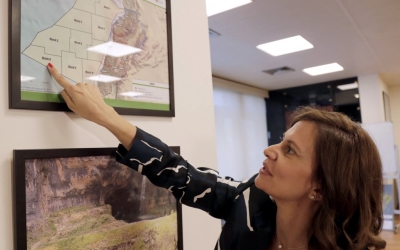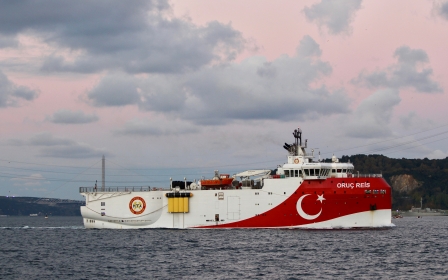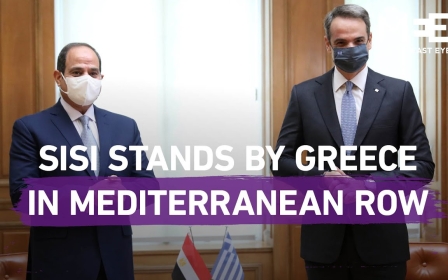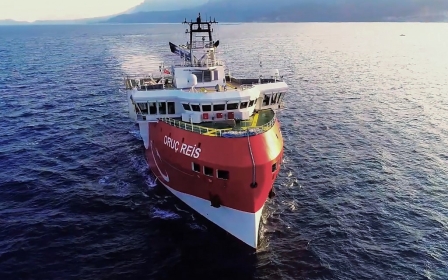Israel signs Mediterranean energy agreements with Cyprus and Greece
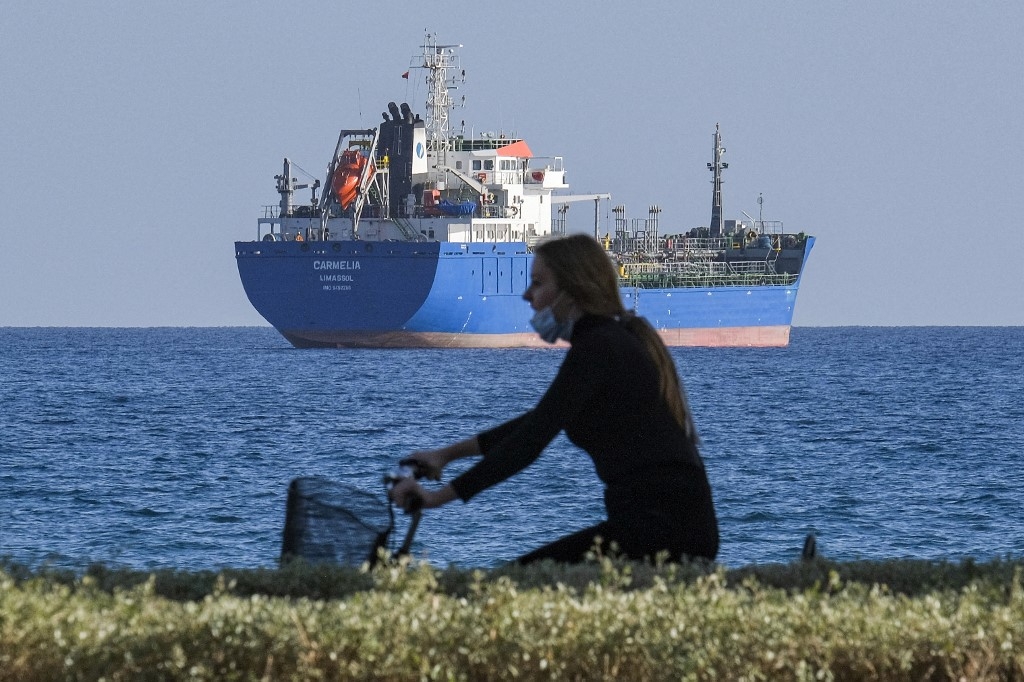
Israel and Cyprus signed an agreement on Tuesday over gas reserves in the Mediterranean Sea located in their maritime border, resolving a nine-year standstill over the offshore resources.
Cyprus's Aphrodite gas field, which was discovered in 2011, stretches into Israel’s maritime zone and another gas field, complicating plans for development.
In 2019, Cyprus signed a 25-year concession with Noble Energy, Shell and Delek Drilling for the exploitation of the Aphrodite field.
Natasa Pilides, Cypriot energy minister, and Yuval Steinitz, her Israeli counterpart, agreed on Tuesday to set up a framework to resolve the issue and circulate guidelines for companies involved in the development of the gas field.
"The framework will be set out in a joint letter which is being prepared. We are both very satisfied we are now at this point after nine years of discussion," Pilides told reporters.
Steinitz described the agreement with Cyprus as a “fair chance” to reach a resolution.
"Nothing is certain, but there is a good chance that this might lead us to a solution of this little but significant obstacle in the wonderful relations and cooperation between Cyprus and Israel on energy and on many other issues," said Steinitz, according to the semi-official Cyprus News Agency.
The Aphrodite field holds an estimated 4.1tn cubic feet of gas. At stake was about 10 percent of the deposit, which is a fraction of the gas already discovered in Israel.
Undersea power cable
The Israeli energy minister had visited Cyprus to also sign on Monday a memorandum of understanding with Cyprus and Greece to create a subsea power cable, called the EuroAsia Interconnector Project, crossing the Mediterranean Sea and linking the three countries' electricity grids.
The 2000MW power project will be 1,500km long and 2,700 metres under the sea and will connect Cyprus, Crete and Attica (the peninsula on which Athens is sited) in Greece, and Israel with the rest of Europe.
The first phase is set to be commissioned at the end of 2025, and will establish an alternative energy corridor connecting eastern Mediterranean counties with western Europe.
Middle East Eye propose une couverture et une analyse indépendantes et incomparables du Moyen-Orient, de l’Afrique du Nord et d’autres régions du monde. Pour en savoir plus sur la reprise de ce contenu et les frais qui s’appliquent, veuillez remplir ce formulaire [en anglais]. Pour en savoir plus sur MEE, cliquez ici [en anglais].


